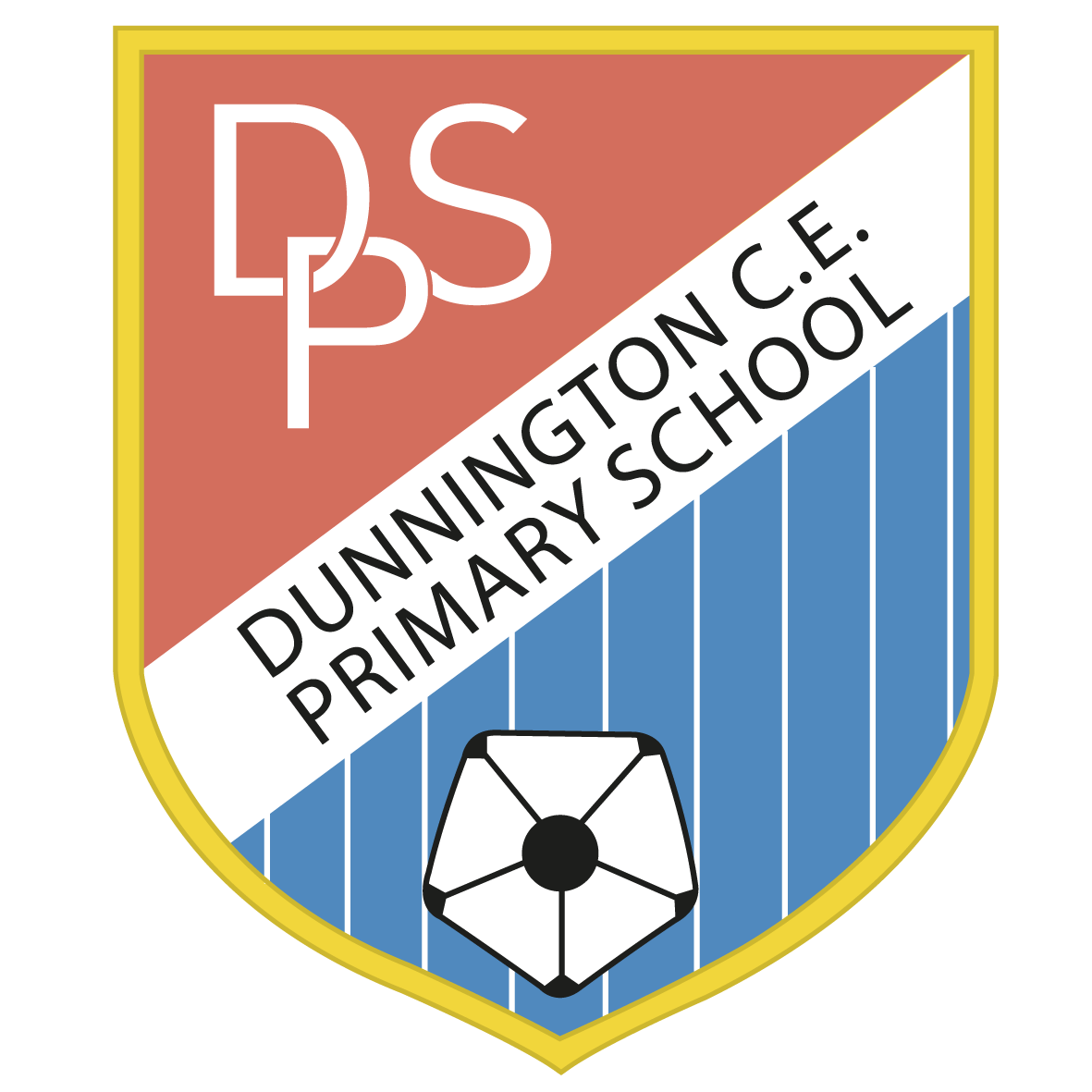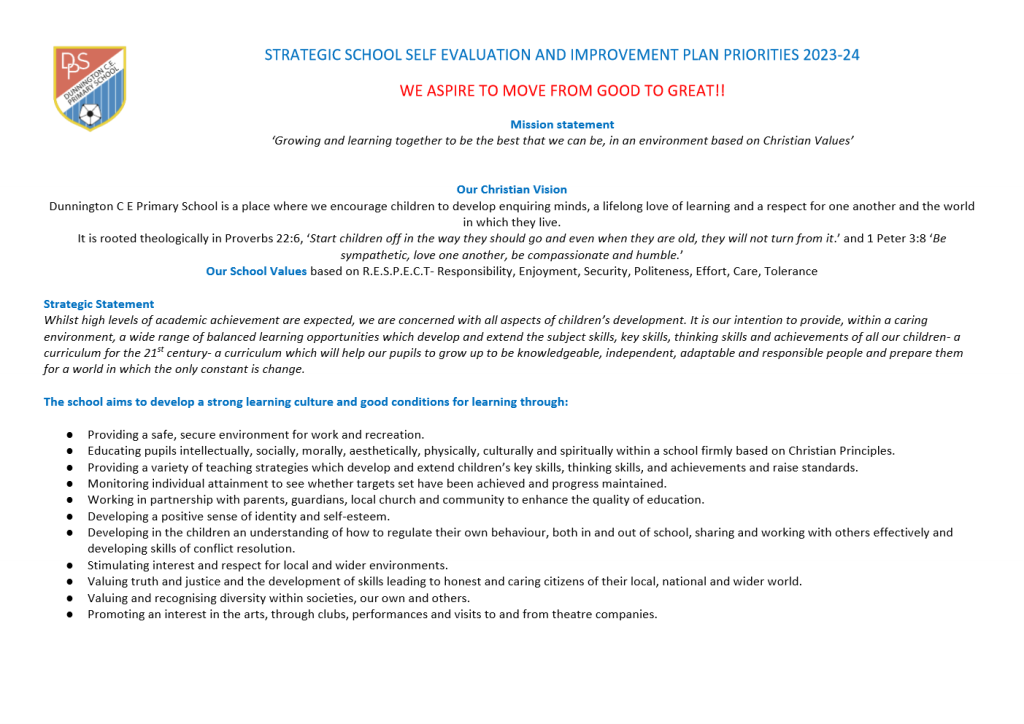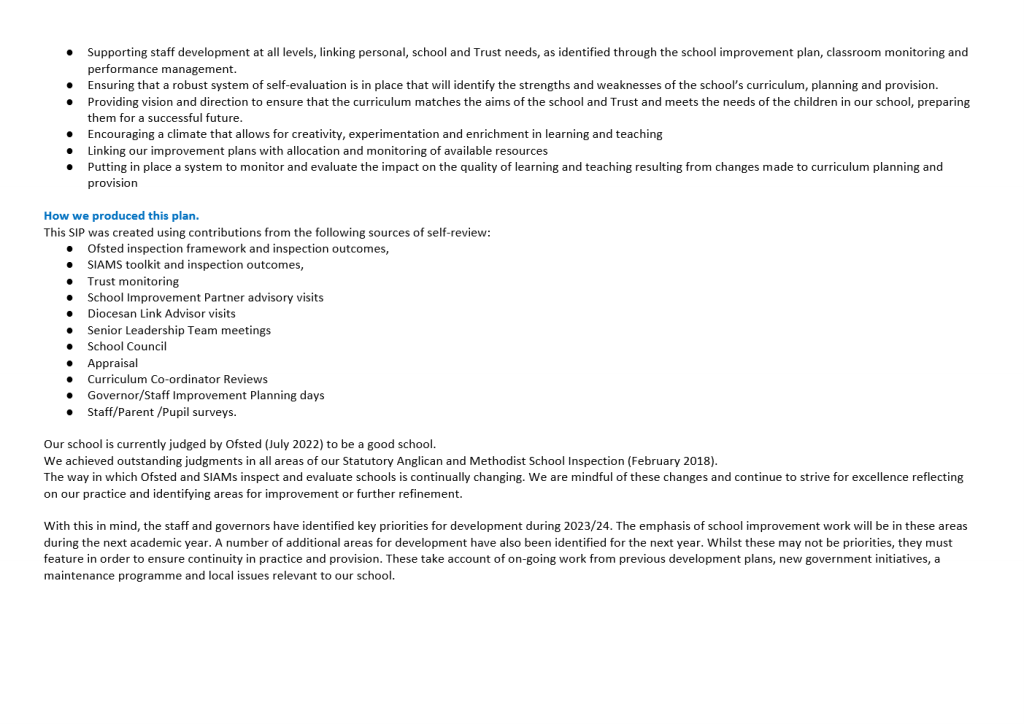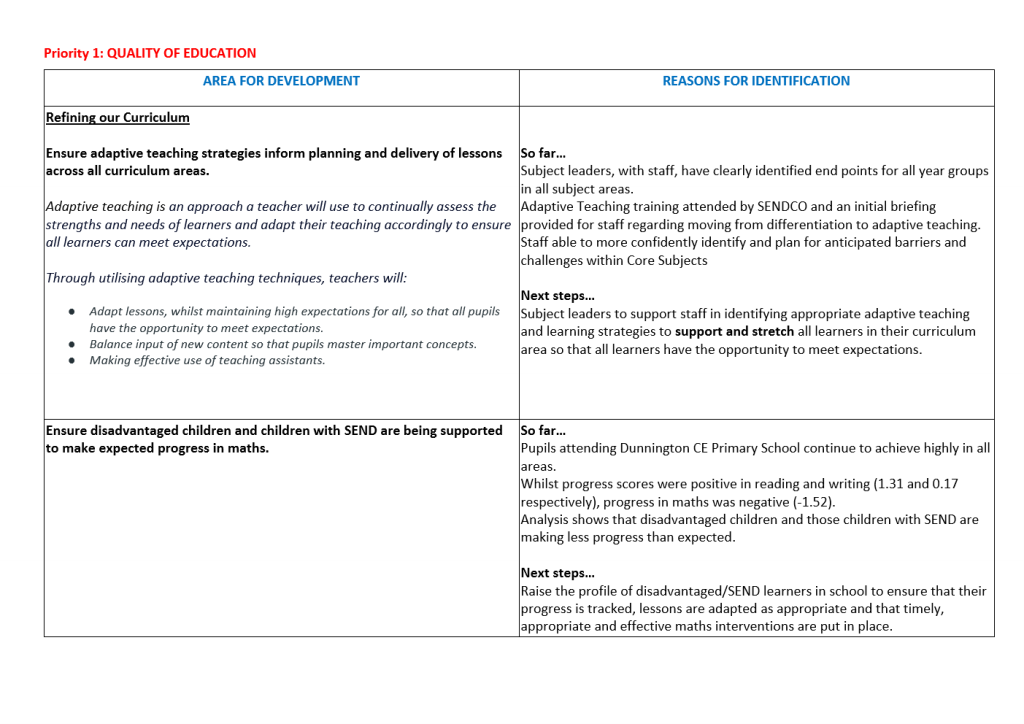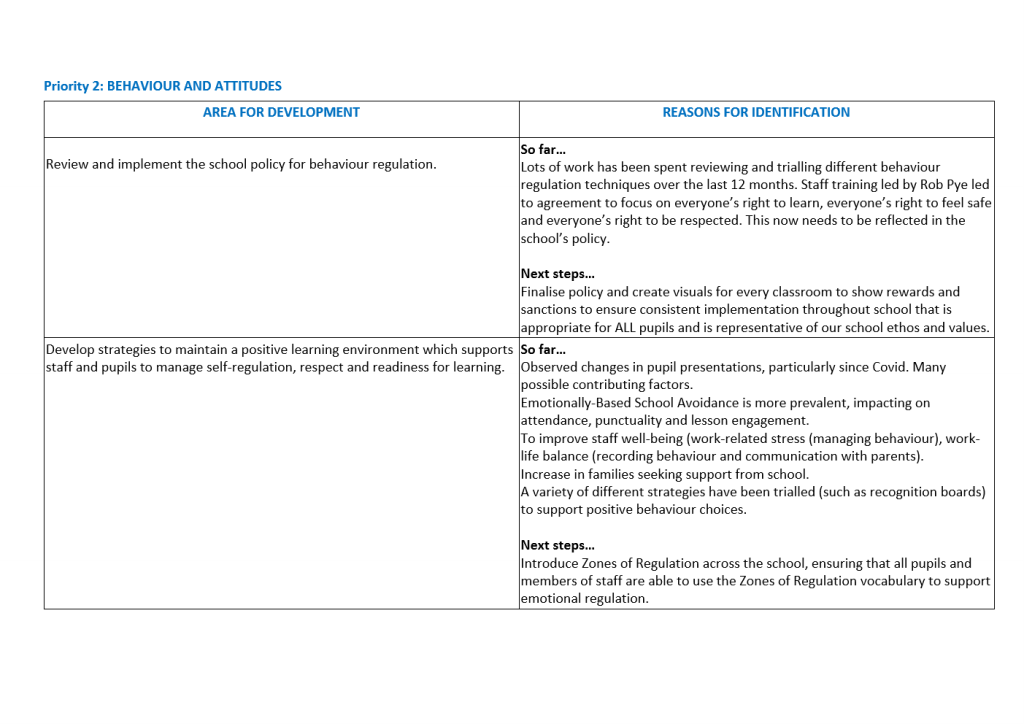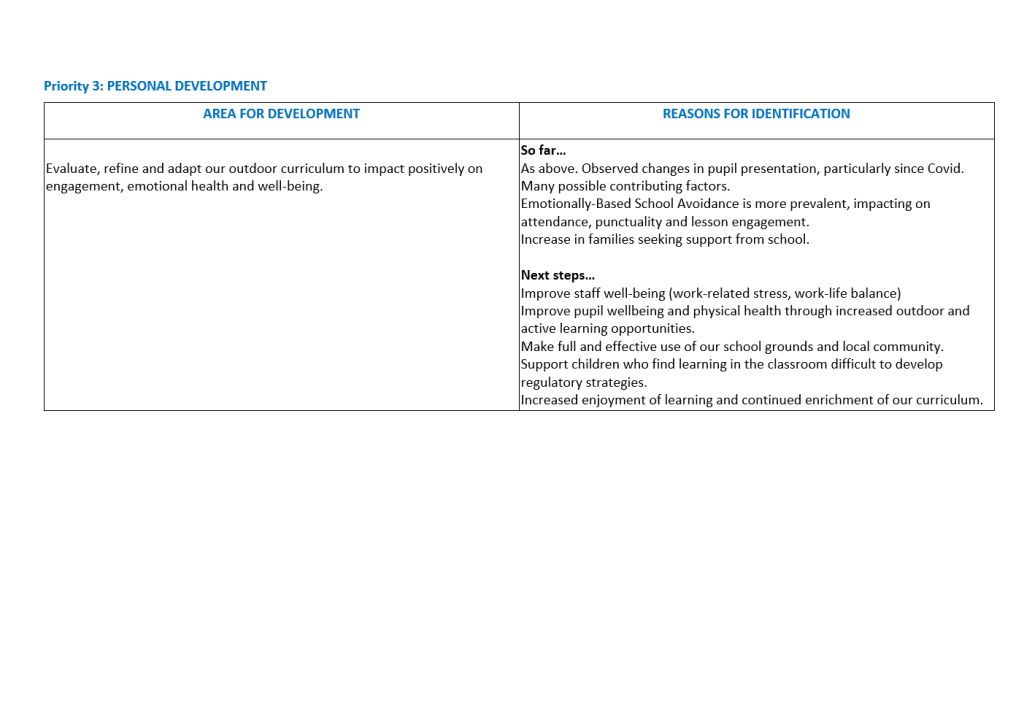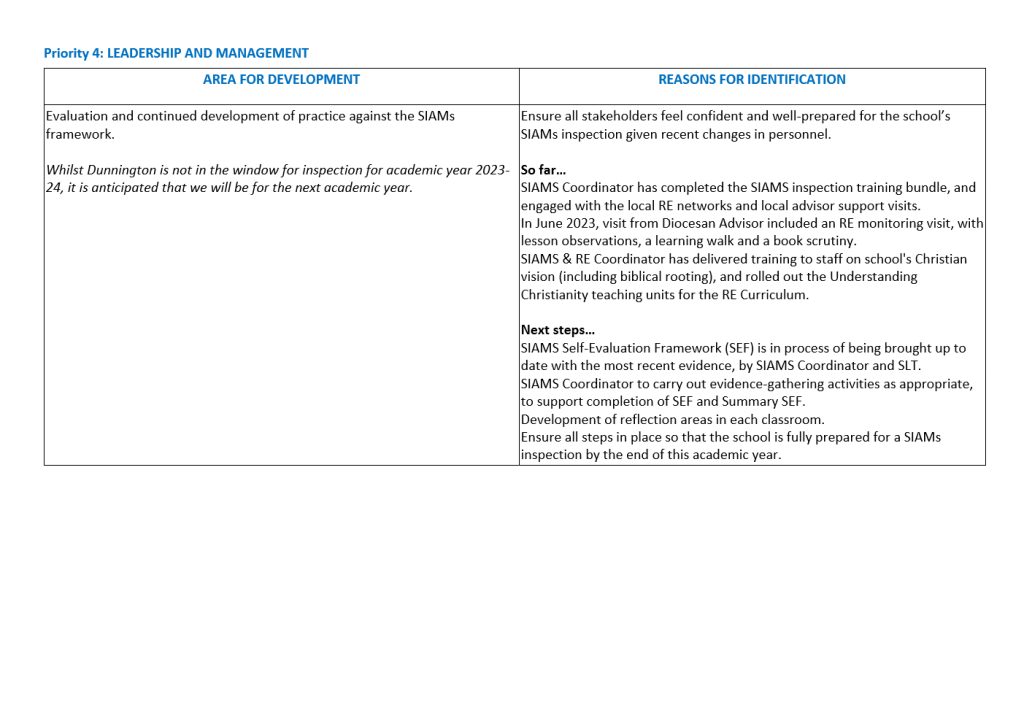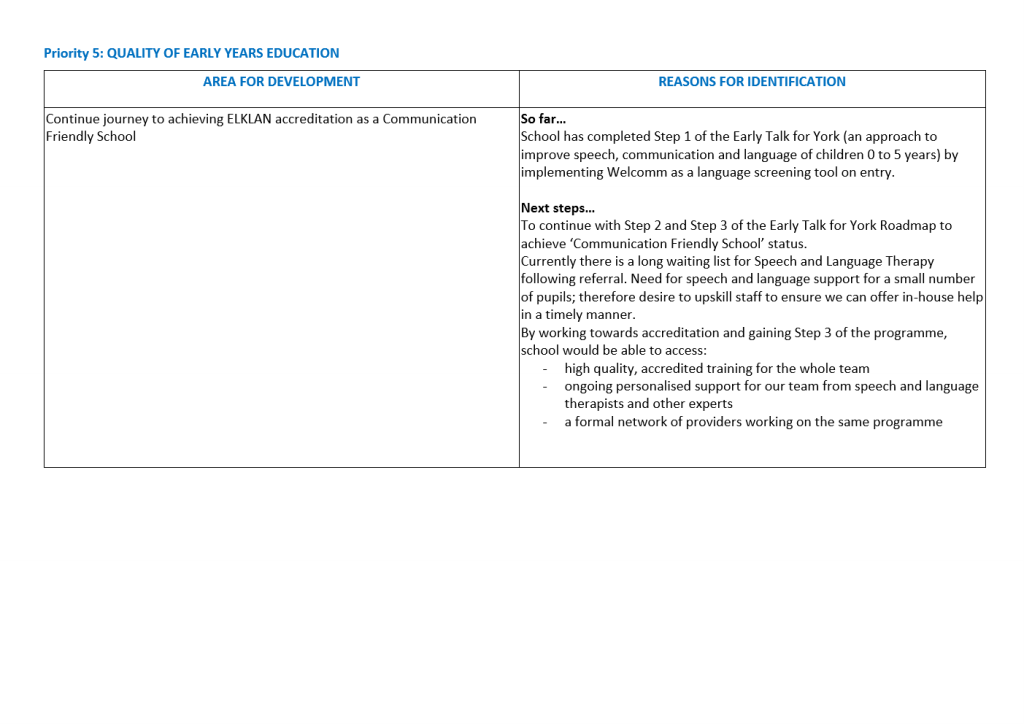STRATEGIC SCHOOL SELF EVALUATION AND IMPROVEMENT PLAN PRIORITIES 2023-24
WE ASPIRE TO MOVE FROM GOOD TO GREAT!!
Mission statement
‘Growing and learning together to be the best that we can be, in an environment based on Christian Values’
Our Christian Vision
Dunnington C E Primary School is a place where we encourage children to develop enquiring minds, a lifelong love of learning and a respect for one another and the world in which they live.
It is rooted theologically in Proverbs 22:6, ‘Start children off in the way they should go and even when they are old, they will not turn from it.’ and 1 Peter 3:8 ‘Be sympathetic, love one another, be compassionate and humble.’
Our School Values based on R.E.S.P.E.C.T- Responsibility, Enjoyment, Security, Politeness, Effort, Care, Tolerance
Strategic Statement
Whilst high levels of academic achievement are expected, we are concerned with all aspects of children’s development. It is our intention to provide, within a caring environment, a wide range of balanced learning opportunities which develop and extend the subject skills, key skills, thinking skills and achievements of all our children- a curriculum for the 21st century- a curriculum which will help our pupils to grow up to be knowledgeable, independent, adaptable and responsible people and prepare them for a world in which the only constant is change.
Previous Years
SCHOOL IMPROVEMENT PRIORITIES FOR 2022-23
Click here to download the 2022-2023 School Improvement Priorities as a .pdf
SCHOOL IMPROVEMENT PRIORITIES FOR 2021-22
Click here to download the 2021-2022 School Improvement Priorities as a .pdf
